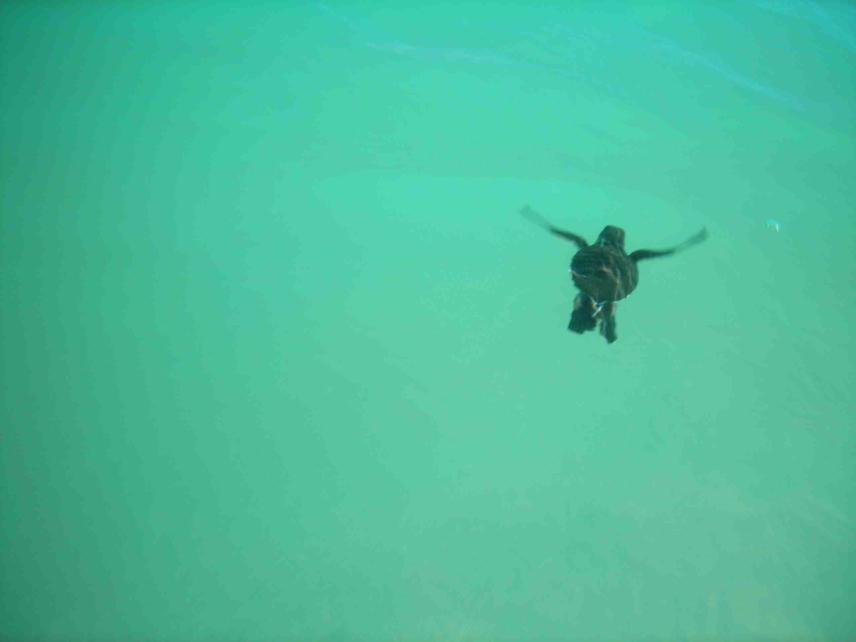Alasdair Harris
Other projects
16 Jul 2010
The Development of Community Marine Turtle Conservation in Southwest Madagascar
This project aims to assess the status and exploitation of marine turtles in southwest Madagascar, in order to address the existing lack of information that is hampering the development of conservation strategies.

Turtle hatchling.
This project aims to assess the status and exploitation of marine turtles in southwest Madagascar, in order to address the existing lack of information that is hampering the development of conservation strategies. Five species of marine turtle inhabit Madagascar’s coastal waters, and all are listed as endangered and are protected through CITES, of which Madagascar is a signatory. Despite this, the indigenous Vezo community continue to actively fish all five species, killing over 3,500 turtles per year, and the continued decline in the region’s nesting turtle population is attested to by fishers, who report diminishing turtle size, lower catch levels, and reduced use of nesting sites.
Southwest Madagascar’s remote Toliara region contains some of the most biodiverse coral habitats in the Indian Ocean, but also supports Madagascar’s largest traditional fishery, with 20,000 fishers operating in the province. Artisanal fishing is the primary cause of direct reef damage and unsustainable biomass removal but is also the principal source of income for the indigenous Vezo coastal communities.
There are currently no conservation strategies in place to monitor or manage the traditional subsistence turtle fishery, and the illegal catching of turtles is widespread despite evidence of declining population numbers documented since 1974. Furthermore, there has been no thorough assessment on the level of exploitation of turtles in this region since 1989. This project will provide essential baseline data on the current status and exploitation of turtle populations in south west Madagascar through monitoring catches and nesting sites, socioeconomic research, educational workshops, and aims to develop, in conjunction with the local community, a viable management plan for the conservation of the marine turtle species.
This project focuses on the turtle fishery, as the decline of these species is of global concern, and its success will lead to fulfilment of several themes of the IUCN Global Strategy for the Conservation of Marine Turtles, as well as enhancing understanding of the marine turtle populations in south west Madagascar, which will contribute to regional and global conservation strategies.
However, the most substantial and long lasting contribution that the project will make to nature conservation is through its wider aim of engaging the Vezo people in a process of education and dialogue, that will lead to a change in their attitude to marine resource use and a shift towards the development of community-led management strategies that will promote more sustainable exploitation in all local fisheries.